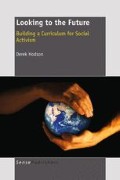Abstract
As argued earlier, science and technology education has the responsibility of educating students about the complex but intimate relationships among the technological products we consume, the processes that produce them, the values that underpin our needs and wishes to acquire them, and the biosphere that sustains us. It has the responsibility of presenting students with the moral-ethical dilemmas arising from developments in medicine and biotechnology. It has the responsibility of assisting students to confront all socioscientific issues rationally, critically, vigorously, fearlessly and confidently, and to argue strongly, appropriately and persuasively for their own views. It has the responsibility of motivating and enabling students to address and challenge taken-for-granted assumptions, commonly expressed views and ideas, ‘received wisdom’ and dominant perspectives. It has the responsibility of encouraging students to question their own beliefs, attitudes and values, address any inconsistencies, and consider the appropriateness of their daily behaviour. It has the responsibility of preparing students for sociopolitical action, and giving them some experience of such action. Failing to do these things, on spurious grounds of disciplinary purity or rigour, or the desire to present science as ‘value free’, is simply reinforcing the status quo and contributing to the problems our society currently faces. As Martin Luther King said, in a somewhat different context, “If you are not part of the solution, you are part of the problem”. At about the same time, Noam Chomsky (1969) wrote: “Intellectuals are in a position to expose the lies of governments, to analyze actions according to their causes and motives and often hidden intentions. In the Western world at least, they have the power that comes from political liberty, from access to information and freedom of expression. For a privileged minority, Western democracy provides the leisure, the facilities and the training to see the truth lying hidden behind the veil of distortion and misrepresentation, ideology and class interest through which the events of current history are presented to us” (p. 256). If we don’t exercise that capacity for intellectual independence, scepticism and critique, and encourage our students to do so, we become passive agents for corporate, government and military interests rather than active agents for the common good. We are, therefore, implicated in what Chomsky calls the “manufacture of consent”.
Access this chapter
Tax calculation will be finalised at checkout
Purchases are for personal use only
Preview
Unable to display preview. Download preview PDF.
Author information
Authors and Affiliations
Rights and permissions
Copyright information
© 2011 Sense Publishers
About this chapter
Cite this chapter
Hodson, D. (2011). Building A Curriculum. In: Looking to the Future. SensePublishers. https://doi.org/10.1007/978-94-6091-472-0_3
Download citation
DOI: https://doi.org/10.1007/978-94-6091-472-0_3
Publisher Name: SensePublishers
Online ISBN: 978-94-6091-472-0
eBook Packages: Humanities, Social Sciences and LawEducation (R0)


